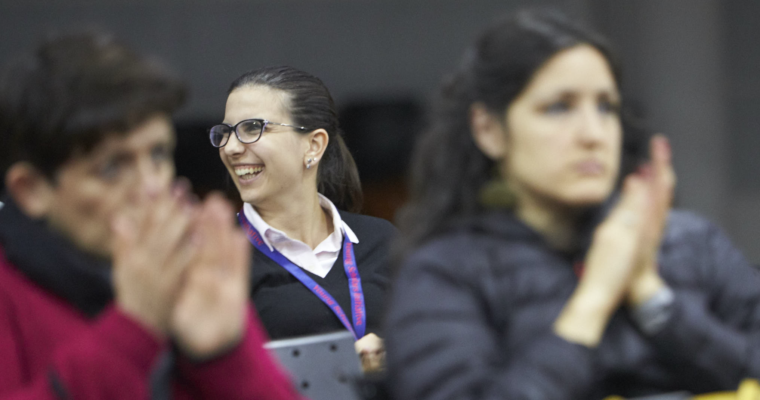Every so often, we highlight one of the members of the YSI community. We share their story, their aspirations, and what new economic thinking means to them. This time, we cover Lara Merling, alumna of the Levy Economics Institute, co-founder of Economic Questions, and currently, Economic Research Officer at the International Trade Union Confederation (ITUC) in Washington, DC. This spring, Lara is helping members of YSI come together in DC to host various workshops.
How did you wind up in economics?
Pavlina Tcherneva’s class on Money and Banking converted many students to economics, myself included. It made me realize how economics and particularly economic policy defines so much of our lives. And as I advanced, I realized the issues in the discipline itself. All economics is political, but the models in our textbooks manage to hide their assumptions, and present themselves as objective science. In my masters degree, I studied not just the neoclassical models, but also their critiques, and many alternative ideas and approaches. I was able to do research that shows the failures of neoclassical economics, along with the real human costs that it’s policies (such as austerity) bring about.
How is it to work at the intersection of research and policy making in DC?
As an Economic Research Officer in the Washington office of the ITUC, which represents over 200 million workers globally, I draw on the insights from my research to advocate at the IMF and World Bank for better and fairer policies for working people everywhere.
That said, it’s not without difficulty. Policy makers tend to uphold economics as a precise and objective science. In reality, there are politics behind every economic model, and we should not pretend otherwise. One may expect that policy makers are in a good position to understand that, but there is still a widespread tendency to stick with the most widespread models, label them as “sound economics” and use them to justify a political agenda; tricky business when people’s lives depend on it.
Furthermore, when it comes to translating research into policy, much of the caution expressed by academics around the certainty of their conclusions is lost when policymakers give in to the temptation to cherry-pick findings, and emphasize those that support their agenda. This way, nuanced findings with various limitations can quickly turn into something that appears to be a solid fact.
To make matters worse, institutions such as the IMF and World Bank continue to glorify neoclassical economists, despite their poor track record in terms of predicting real world events, and helping countries actually develop. But much of my professors, who for decades have been marginalized by these institutions, have persisted in their work and seen their predictions proven right. They have stood strong, and continue to put their energy towards an economics that works for society, not against it. And I can draw upon them for inspiration when things feel like an uphill battle.
What are your hopes and dreams?
I am working not just to further develop my perspectives on the policy failures of neoclassical economics, but also to contribute to alternative frameworks that can address the big challenges of our time. One of the approaches I focus on in my work is that of prioritizing full employment and sustainable growth. Making these explicit goals changes the game for economic policy making. They provide a lens through which to explore new solutions to the challenges of our time.
My hope is for a world in which all economists learn about and engage with a variety of schools of thought, and have to argue their positions based on evidence and logical arguments, rather than theories taken for granted. We should all be aware of the history of economics and understand the institutions that we encounter in the real world.
